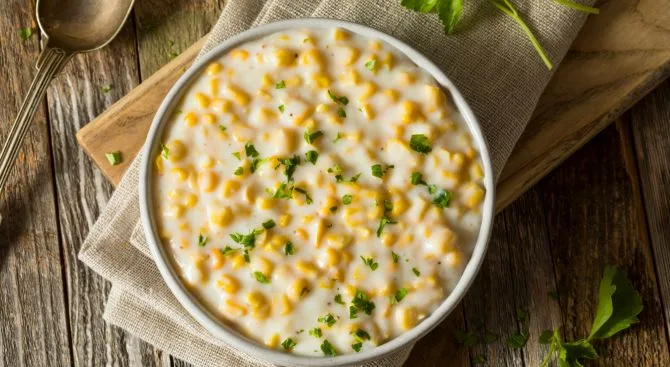Health benefits of corn seeds

Surprising Ways Corn Seeds Support Wellness
Beyond being the base for countless food products, whole-grain corn actually protects wellbeing in numerous evidence-backed ways thanks to specialized compounds within the seeds and germ.- Rich Source of Antioxidants: The corn kernel germ brims with carotenoid antioxidants like zeaxanthin and lutein that combat cellular damage from free radicals implicated in chronic diseases. Antioxidants also preserve healthy vision, brain, immune and heart function.
- Packed with Phytochemicals: Phytochemical nutrients found exclusively in plants boast anti-inflammatory, antibacterial and disease-preventing abilities. Abundant phenolic phytochemicals in corn rank its antioxidant capacity higher than most cereal grains and fruits.
- High Fiber Content: A half-cup of corn sprouts provides around 4 grams dietary fiber instrumental for healthy digestion. Corn seeds’ insoluble fiber also lowers LDL bad cholesterol and stabilizes blood sugar levels preventing insulin spikes and drops.
- Rich in Vitamins & Minerals: In addition to antioxidants, corn seeds supply B vitamins plus iron, zinc, magnesium, copper and phosphorus necessary for red blood cell synthesis, immunity support, proper nerve transmission and bone strength regulation among other key jobs.
Corn Seed Nutrition Stats
From a tiny kernel, corn seeds erupt with diverse protective and balancing nutrients. Check out what one half-cup of corn sprouts contains:- Vitamin C – 28% RDI shields cells from harm and boosts immunity
- Thiamine B1 – 11% RDI converts carbs to energy
- Pantothenic Acid B5 – 15% RDI manufactures coenzyme A vital for metabolism
- Folate B9 - 14% High folate levels prevent neural tube defects in fetuses and lower stroke risk
- Magnesium – 15% RDI regulates muscle, nerve and heart function
- Manganese – 30% RDI generates essential enzymes and antioxidants
- Phosphorus – 15% RDI together with calcium strengthens bones and teeth
Research-Backed Health Benefits of Corn Seeds
With those impressive nutrient stats under your belt, here’s exactly how corn seeds and sprouts may supercharge wellness based on the latest scientific research:- Prevents Cell Mutations – Corn phytochemicals minimized DNA damage by a stunning 68% versus controls in lab analysis. Reducing mutations prevents cancer initiation.
- Lowers Risk for Diabetes & Metabolic Syndrome – Due to regulation of insulin levels and blood sugar spikes, studies correlate higher whole corn intake with slashed diabetes incidence.
- Reduces LDL Cholesterol – Clinical data reveals consuming whole-grain corn regularly lowers LDL and triglycerides levels improving heart health.
- Aids Weight Loss – The fiber fills you up faster curbing calorie intake. One study demonstrated corn eaters consume fewer calories daily and weigh less than non-eaters.
- Supports Digestion – The insoluble fiber feeds good gut bacteria producing short-chain fatty acids that reduce inflammation improving digestion and immunity.
- Boosts Skin Health – Lutein and zeaxanthin antioxidants filter UV rays, preserve collagen and moisture barrier protecting youthful skin.
Simple Ways to Eat More Corn Seeds
It’s easy to amplify corn seeds nutritional advantages through these simple tricks:- Blend into bread, muffins and waffles. Swap up to one quarter the flour.
- Toss sprouted seeds into salads, burgers and tacos for some crunch.
- Stir seed meal into yogurt, oats, smoothies and soups.
- Roast then grind seeds into a gluten-free flour alternative.
- Add corn sprouts into stir fries, frittatas and grain bowls.
- Enjoy fresh corn juice extracting seeds’ sweet earthy flavor.
- Simmer seeds when making corn broth for next level nutrition.
Corn Seeds Side Effects
Here are some potential side effects of eating corn seeds:
- Allergic Reactions: Corn is one of the most common food allergens. People with corn allergies can experience symptoms like hives, itching, swelling, coughing, trouble breathing, stomach pain, vomiting or diarrhea when consuming corn seeds or products derived from them.
- Digestive Issues : Some report corn seeds aggravate digestive problems like acid reflux, irritable bowel syndrome (IBS) and diverticulitis, likely due to their high fiber content. Issues may include abdominal pain, cramps, bloating, gas or constipation.
- Kidney Stones: Corn seeds contain moderate amounts of oxalates. For those prone to developing kidney stones, higher dietary oxalates can contribute to stone formation by binding with calcium to form painful kidney stones.
- Blood Sugar Spikes: Despite their high fiber content, corn seeds have a high glycemic index causing blood sugar to rapidly rise after eating them. This makes them unsuitable for people with diabetes or insulin resistance trying to control blood sugar levels.
- Phytic Acid Content: Corn seeds contain phytic acid which impairs absorption of critical minerals like iron, zinc and magnesium. Over time, this may contribute to mineral deficiencies for some people. Soaking, sprouting and fermenting corn before eating can neutralize phytic acid.
- Mold Contamination: Wet storage allows corn seeds’ starch content to easily develop hazardous molds that generate toxic aflatoxins linked to liver disease and liver cancer. Strict drying is required.
So while corn seeds provide proven benefits, some pre-existing health factors warrant caution regarding their regular consumption. Those with related sensitivities or conditions should minimize intake.
Post a Comment